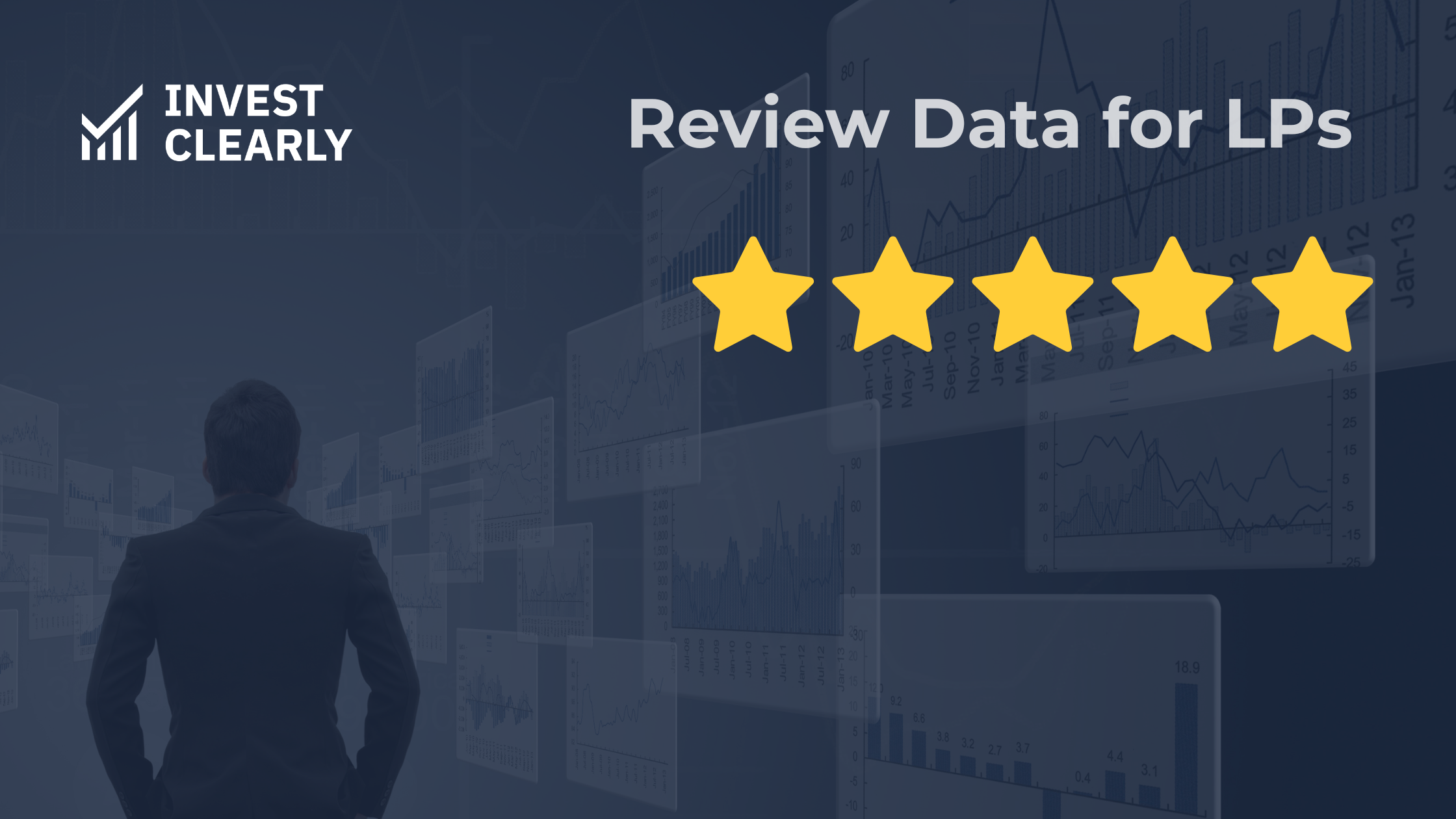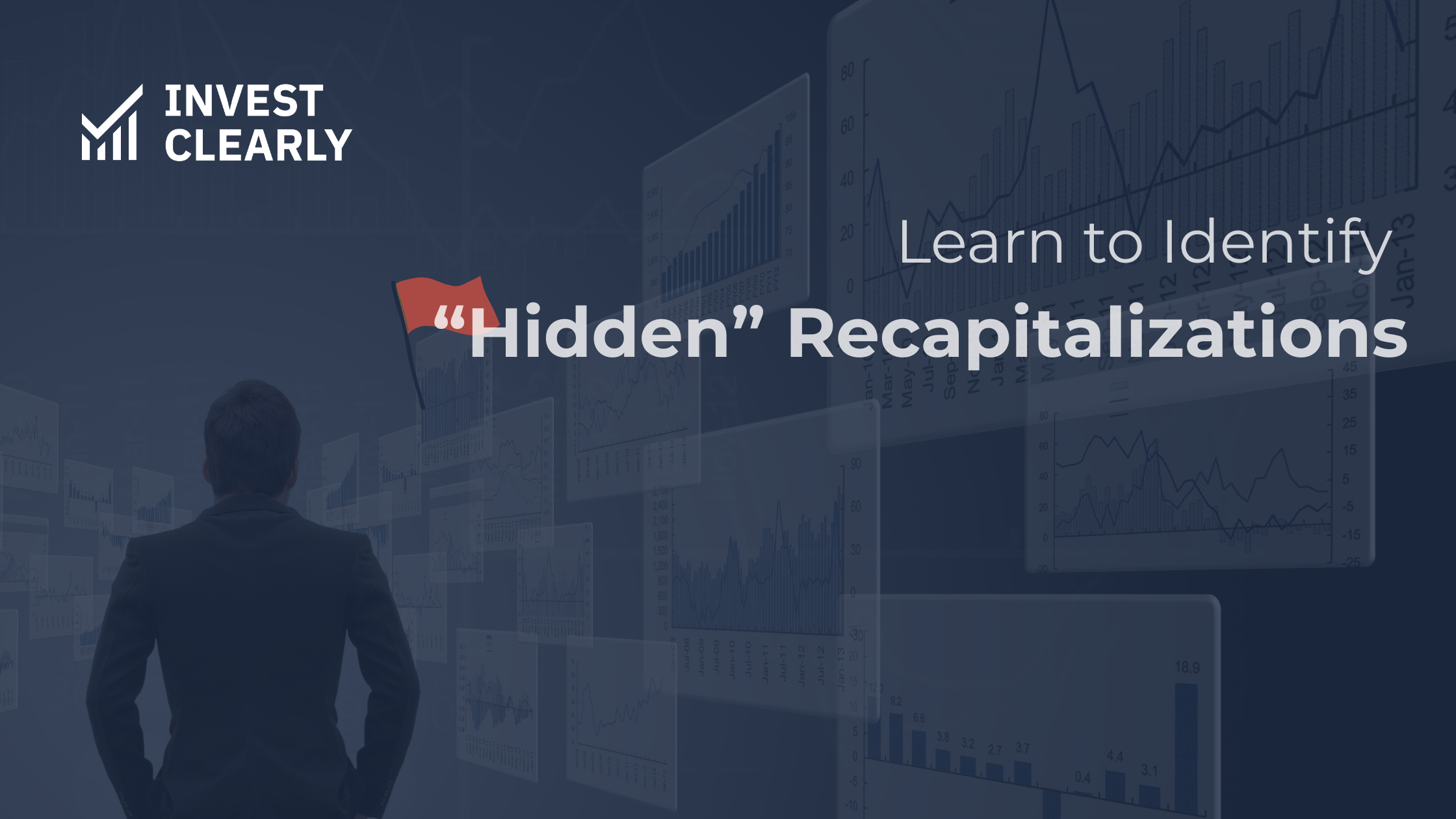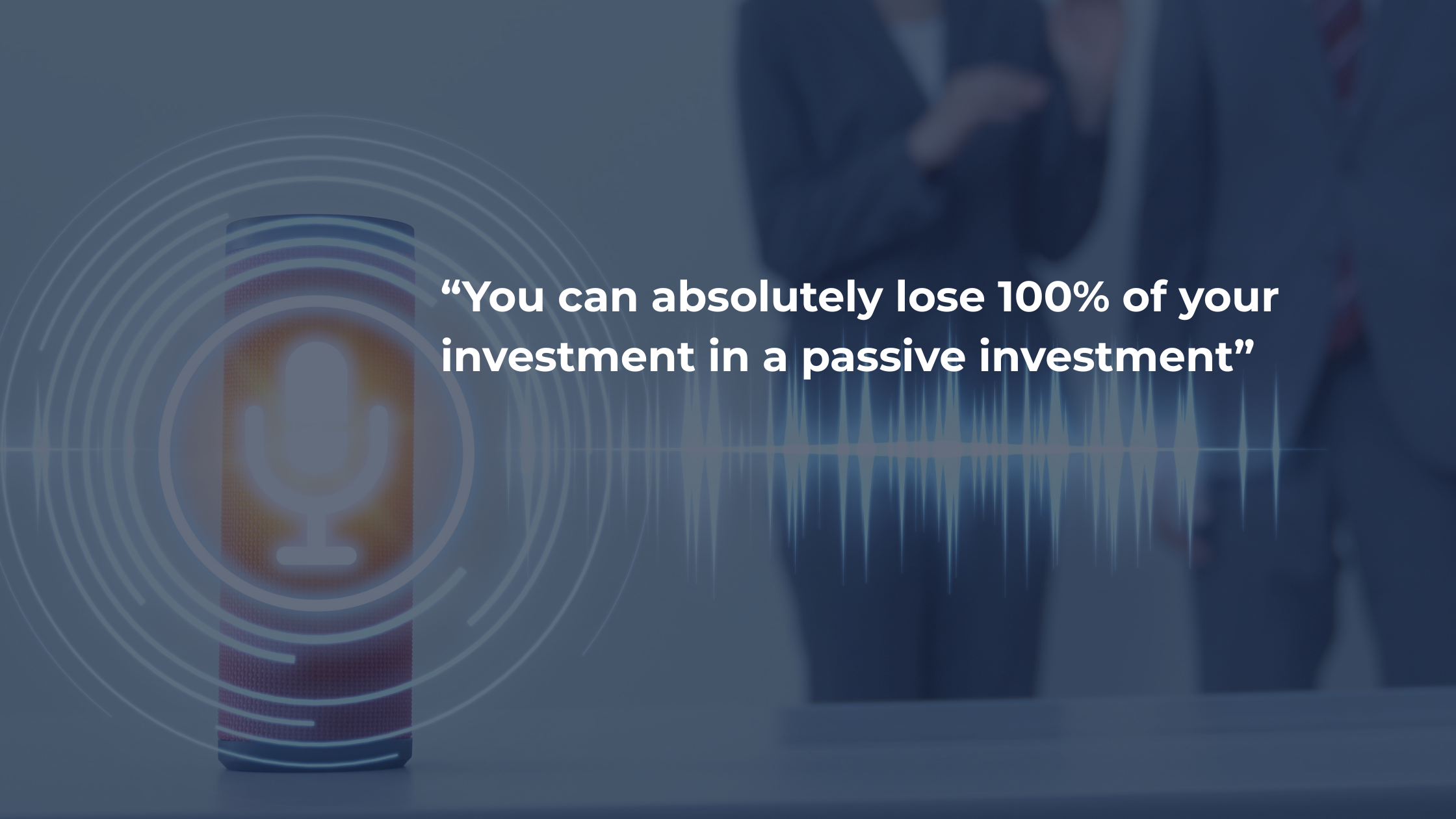
Theres No Such Thing as a Risk Free Investment with Jeremy Dyer
Never miss an Invest Clearly Insights article
Subscribe to our newsletter today
In this conversation, Jeremy Dyer shares his journey from a successful technology sales career to becoming a prominent figure in passive real estate investing. He discusses the importance of building trust and transparency in capital raising, especially in the current market environment. Jeremy emphasizes the need for operators to communicate effectively with investors, particularly during challenging times, and outlines strategies for maintaining investor confidence. He also highlights the significance of understanding market cycles and the role of operators in fostering trust with their investors.
Theres No Such Thing as a Risk Free investment with Jeremy Dyer
[00:00:32] Pat Zarella (Intro): Welcome back to the Invest Clearly Podcast. I'm the CEO of Invest Clearly, Pat Zarella. In today's episode, my partner Joe Greedy, Chief Strategy Officer of Invest Clearly, sits down with Jeremy Dyer, the VP of Capital Formation of Rise 48 Equity. Jeremy shares how his experience as an LP shaped his approach as a sponsor and how he's adapted to LP sentiment around capital calls and preferred equities in today's market. We also discuss his views on communication, team structure, and the long-term risk trade-offs in vertically integrated models. Let's get into it.
[00:01:00]
[00:01:21] Joe: Jeremy, thanks for joining me today.
[00:01:24] Jeremy: Yeah, Joe, it's great. It's a pleasure. Looking forward to talking with you today.
[00:01:28] Joe: Really excited to talk about building investor trust with you. I know you've been in the game both as an LP and now on the GP side for a while. But for listeners who don't know you well, can you share a little bit about your background in passive investing and what led you to your most recent role at Rise 48?
[00:01:46] Jeremy: Yeah, I'd be happy to. I've been a technology sales guy for the last two and a half decades, believe it or not. I was very blessed in that space to come right out of college, hit the ground running, and become the number one guy in all of North America. That enabled me to be completely financially free by the age of 24. My wife and I wanted to diversify outside of Wall Street into Main Street. The question was: were we going to scratch the entrepreneurial itch and start a business, or invest in real estate?
[00:02:31] We decided to deploy capital into single-family home fix and flips back in 2012 because that seemed sexy on HGTV. That's how we cut our teeth in real estate, through the fix and flip model. That was going well for us, Joe, but the challenge came in 2015 when my wife and I doubled down on children. We went from two kids to four kids—reading between the lines, numbers three and four are twins—and it really became a bandwidth challenge for us.
[00:02:57] While I was continuing to crush the commission checks and bonus checks, I also had four children, two of whom were beginning to get actively involved in sports and wanted dad to coach their teams. Frankly, I had no bandwidth to spend my evenings and weekends dealing with tenants, renovating properties, swinging hammers, and dealing with all the aftermath of fix and flip as a strategy.
[00:03:38] So in 2015, we decided to go passive. I never really knew what the word syndication meant back then, other than knowing the Green Bay Packers were a syndicated football team. Of course, now my perspective has completely changed. In 2015, we got our passive limited partner journey started. We held our breath and plugged our nose—that was kind of the strategy we used. I just knew one thing: I knew, liked, and trusted the main operator. So we deployed capital into our first deal back in 2015.
[00:04:00] If you fast forward to today, 10 years later, my wife and I are actively in 40 deals right now as limited partner investors. I've invested with a dozen different operators in half a dozen different asset classes. I've had deals that have been absolute home runs, and I've had deals where I've lost 100% of my money. I've had that full spectrum of experience having been a limited partner investor for over a decade.
[00:04:44] A couple of years ago, I started letting my family and friends know about what I was up to—those in my personal and professional network. Lo and behold, there was an enormous appetite from other people just like myself, higher net worth individuals in technology sales and similar roles who wanted to get involved as well.
[00:05:02] I started a capital-raising private equity company. In two years, I was able to raise over $50 million from my personal and professional network, largely doing it part-time. That gave me a lot of credibility in the space, and a lot of eyes were on me during that time with the success I had.
[00:05:21] That really caught the attention of Rise 48, where I am now. I'm now the VP of Capital Formation at Rise 48. I've since retired from the technology sales job, and I still manage Starting Point Capital, but it's primarily a vehicle we use to raise capital for Rise 48 projects.
[00:05:41] Joe: Got it. As you've transitioned, what is your day-to-day focus right now? You're in capital formation, but tell everyone what that means for those who don't actually know.
[00:05:50] Jeremy: Totally. We source capital from all kinds of different places—it could be anything from fund-to-funds managers, capital partners, independent RIAs, broker-dealers, wealth managers, or family offices. Really, my role within Rise 48 is to source the capital from those partners and build relationships with them.
[00:06:14] As it relates to the fund-to-funds community or fund manager community, they really see me as being a coach and mentor—somebody that's been there, done that, somebody that's had some success. They'll typically reach out to me if they need a shoulder to cry on or if they need some encouragement. My job is really just to help them continue to motivate them, help them put in the necessary reps that it takes to nurture, foster, and build their own individual networks so that they can become capital raisers who are not raising six figures but are now in the seven-figure range. Once they get there, what can we do to help support them to get to that multiple seven-figure range and beyond?
[00:06:57] Joe: Got it. Yeah, that makes sense. I guess what I want to talk about today is your incredible journey and this transition you've made. At Invest Clearly, we think trust and transparency on the sponsor side is more important than ever in terms of the capital raising motion. LPs have lots of options out there. As you've seen, it's not just that the number of GPs has proliferated, but also the way LPs are getting introduced to GPs is different. It's not necessarily long relationship-building cycles as much anymore, though that does happen as the relationship builds. I want to talk to you about how you've seen that trust journey evolve and where it plays a role for you right now in your investor education process.
[00:07:52] Jeremy: Yeah, you did a really good job asking a question I could talk about for the next 45 minutes, so I'll try to condense it down. Please keep me honest, Joe. One of the things for me as an individual contributor in this space is I often remind investors that there's no such thing as a risk-free investment. There's operational risk, execution risk—we can certainly dive into those topics. I tell my capital raising community and fund manager community all the time that my largest investor, in the first conversation I had with him after we'd gone through the presentation deck and talked about the investment and the benefits of passive investing in real estate with this particular opportunity, he asked me, "Jeremy, this all sounds great, but what's the worst thing that could happen?" You know what I told him? I said, "I'm going to lose all of your money." You know what he told me after that? He said, "Jeremy, I'm going to invest in your deal because you had that level of transparency."
[00:08:44] I think it's just important for people to understand that investors will invest if they know they can trust you. But this type of environment that we're in now is a little bit different. I believe that trust is built by being authentic, by being genuine, and by being transparent. There are investors who have invested as limited partner investors in real estate syndications that have had some troubling times. They've either had suspended distributions on deals, capital calls, their common equity has been pushed down in the capital stack, or they've lost investor capital. Truth be told, most of the deals that we bought in the last 24 months have seen a near or 100% wipeout of all common equity. Those are the deals we're buying right now because those are honestly the only types of deals that pencil.
[00:10:00] But I do think it's important that the community as a whole really leans into the challenges. I know a lot of operators in this space and fund managers who are walking around right now with their tail between their legs. But those that are out there in front, publicly talking about the challenges of the current market, acknowledging that it is not a seller's market but a buyer's market—we're buying right now, we're not selling because why would we want to give the next buyer a discount?—we're publicly out in front of our investors as well as our extensive network saying, "Listen, we didn't ask for this to happen. We didn't underwrite in our business model the historic run-up in interest rates. We didn't underwrite that property taxes and insurance would skyrocket. We didn't underwrite that new supply would hit the market 24 to 36 months after the point at which we took over the acquisition."
[00:10:47] We didn't underwrite all of those factors or scenarios into our original underwriting model. But what did we do when we recognized the glut of new supply, when we recognized the impact of skyrocketing interest rates, when we recognized the increased cost of property taxes and insurance? What did we do in our underwriting model from that point moving forward? And second to that, of course, is what are we doing to support those assets that were acquired during this 14-month period that every operator in the space is having challenges with right now? That's the period from June 2021 through July 2022. Literally, that 14-month period. If you bought a property with a three-year floating rate bridge loan during that 14-month period, you have distress right now. It's really about how operators are choosing to respond to those investors and whether they're staying committed to a successful or partially successful outcome of that business plan for those properties acquired during that 14-month period.
[00:12:01] Joe: Sure. So let's talk about that for a second, because as you said, you didn't underwrite those things. They weren't necessarily predictable—historic run-ups in interest rates, insurance costs, the whole deal. Things change. The market changes. So naturally, you're going back and having to revise projections, and then other things change in your business model. For instance, obviously at one point you said you'd never have a need to do a capital call. And obviously the dynamics have changed a little bit, whether it's preferred equity or capital calls, or at least the perception of that. I'm sure that's something that comes up. How do you address that? When you publicly make a statement or the company publicly makes a statement, then you have to adjust course. That creates a lot of turbulence in the investor trust mechanism. Walk me through how you've been navigating that.
[00:12:58] Jeremy: Yeah, and if you think about it, any operator that raised capital on a deal that had forward-looking statements in their presentation deck has had to pivot and adjust. It was true up to a certain point that Rise 48 had not had a capital call. We were the last ones to have a capital call because of the strength of Rise 48 and our ability to continue to support those assets with our own working capital. We tried to outlast the market. We wanted to protect and preserve investor capital. Their capital is number one. It sits in priority to our own invested capital, and we were willing to support those assets as long as it took.
[00:13:43] But frankly, we couldn't outlast the market and we simply ran out of time. If you go back to Q4 of last year, Q4 of 2024, you had the Federal Reserve Bank lowering the Fed funds rate or the SOFR rate, but the 10-year Treasury responding in the opposite direction. That, of course, is the major benchmark that's used when it comes to interest rates. You also had a time where the Federal Reserve was continuing to suggest that there were further interest rate cuts coming, and that of course did not happen. Most operators in the space were suggesting or shouting "survive till 25, survive till 25." Well, then 25 got here and we're still stuck.
[00:14:30] Joe: I think it became "survive through 25" after that. I'm not sure. I think it shifted.
[00:14:34] Jeremy: That's right. I mean, our plan was never to do a capital call, even in Q4 of 2024. Our plan was not to have to go to investors with a request for additional liquidity, but it is what it is. We couldn't outlast the market. Obviously, the supply-demand constraints, absorption constraints, the higher-for-longer interest rate environment—we had to solve for these assets. So we chose to solve for these assets by asking investors to continue to partner with us on the opportunities.
[00:15:13] Joe: Got it. Cool. What do you think is the most important thing for you to get through when you're explaining the strategic shifts to investors? Because I think that's where they don't always understand it. Not everyone's in 40 deals. Many of your investors, I'm sure, are in one or two or three deals, so they don't necessarily have a lot of experience with deals going sideways or they haven't been doing it long enough to see market shifts. How do you, as the person who's chiefly responsible for communicating with LPs, communicate that to them effectively, and what are you trying to get across?
[00:15:48] Jeremy: Yeah, it's a great question. Really, at the end of the day, you have to be human. You have to be sympathetic and apologetic. We didn't ask for this. They didn't ask for this type of outcome with their investment. And leveling up with people to let them know there are market cycles in real estate. Back in 2021, everybody was making easy money, and then that story stopped. I mean, there are operators in this space back in 2021 that were buying and syndicating an apartment building, forcing zero NOI growth, and just watching cap rates compress. They looked like they knew what they were doing when really they didn't. So there was a lot of easy money to be had back in 2021.
[00:16:31] That music, of course, stopped with the glut of new supply, interest rates, and additional costs at the property level that weren't budgeted for or planned for in the underwriting model. The question then is, now that we are where we are, what is Rise 48 and what are other sponsors for that matter doing to continue to support those assets? Unfortunately, some have simply chosen to walk away and hand the keys over to the bank. Some have chosen to basically say, "Hey, this is a 40% rescue capital call. If you don't participate, you're going to get crammed down and diluted." There are other operators in the space—Rise 48 chiefly—that provide incentives to our investors to continue to partner with us.
[00:17:27] Because limited partners need to understand: you're an owner. You're an owner in this deal. We are tied and tethered together till death do us part. You don't have to be the one that's managing the business plan, but you're an owner-investor. You are a partner with us in this property. I think most investors understand that on the front end, but for those that don't, we certainly want to educate them that we really need your support and your help. If we have to go to the market with a 20% capital call, what are we willing to do to provide an incentive for those investors to continue to deploy new capital in a way that they don't feel like they're throwing new money after bad?
[00:18:17] The way that we've chosen to structure it, which I think has worked out most certainly in our favor, is we've chosen to structure it with a nice yield play, a nice current pay on new invested dollars. We've also allowed investors to have their original common promoted into the preferred layer of the capital stack, which further assists with risk mitigation on that investment. When possible, we'll even provide a corporate guarantee on new money invested in those deals.
[00:18:36] We make sure that it's important that all investors understand that there's no such thing as a risk-free investment. It's really when things go south, who's the main operator behind that deal? And what types of decisions are they going to make in order to help support you and put you as an investor ahead of and in front of their own interests?
[00:18:57] Joe: 100%. Obviously, you guys have taken your fair share of coverage, probably gotten more than most just because of the rise of Rise 48, for lack of a better term. One of the interesting things about you, Jeremy, is that you were an LP in Rise well before you started working there. So you're coming at it from a perspective where, presumably, some of your own invested dollars are in some of these deals that took place during that time, I would think as an LP, correct?
[00:19:24] Jeremy: Yeah, I mean, outside of the founders, I'm the largest investor in Rise 48. Outside of the main founders, I'm their largest single LP investor in their deals. I've raised over $50 million into their deals and opportunities. And as I maybe mentioned before we started recording, I'm also an LP investor in a lot of other operators' deals in the space, many of which are household names in this industry and all of which have distress on their current portfolio from deals that they purchased in '21 and '22.
[00:20:03] Joe: No, I think that's what makes your perspective so interesting because you're speaking as the representative of the entity to the LPs, but you are the LP as well. You're drinking your own medicine. You're able to relate to them and say, "Hey, this is what I would want to know if I were in your shoes." And by the way, I am in your shoes. It's probably not always easy to actually get that across though. I'm wondering if you could walk me through a few scenarios where you've had to communicate something or where you were in a trust-building environment and you could actually communicate that effectively, and maybe one where it didn't go as well, if you want to share that.
[00:20:53] Jeremy: Yeah, I mean for sure, and again, keep me honest because I'm not entirely sure exactly what you're asking me, Joe. But I have a competitive advantage in the space, not only in raising capital but also partnering with fund managers and other institutional investors because my lens is much further out. I have the luxury of having had actual limited partner experience and exposure with a lot of different operators. Most operators don't have the level of view that I have because they only invest in their own deals. Many limited partners lack that as well because they'll hook their trailer up to one operator's truck and never let go. Whereas I've had experience investing with multiple operators over different asset classes, different market geographies, and locations. Again, I've had deals that have been grand slams and I've had deals where I've lost 100% of my capital as well.
[00:21:59] Joe: Maybe let me reframe the question then. Maybe you could talk to me about times when operators were trying to build trust with you and when you saw it done really well, and when maybe something was happening in one of your investments and the operator didn't really address it the way that they should have.
[00:22:20] Jeremy: Yeah, I mean, you're obviously drilling down on transparency and performing due diligence on the operator.
[00:22:27] Joe: Well, it's a relationship business, Jeremy. I mean, at the end of the day, what I always tell operators is, hey, no matter how programmatic capital raising becomes or no matter how much research investors do on their own, at the end of the day, this is about a relationship between people that gets built. So there's a process there. Whether you're dating or investing, there's a process to building that relationship, and there are moments when trust is either built or degraded.
[00:22:58] Jeremy: No, you're spot on. I mean, at the end of the day, raising capital for real estate or any investment, whether that's your financial advisor or private equity, it's a sales job. And it's predicated—that relationship is predicated on trust. You're building trust by having genuine, authentic, transparent conversations with other people. You're building into that relationship. You're serving others. You're finding a way to provide value to people. Everybody's got pain points. We need to uncover what those pain points are and then provide a solution for those pain points.
[00:23:36] I have a lot of operators that reach out to me all the time asking for me to raise capital on their deals. Usually my response is, "I don't have enough bandwidth to be able to do that. I've got deal fatigue." That sort of thing. But I'm more than happy to have and entertain those conversations with them. In fact, I host my own podcast called The Freedom Point, and I've had hundreds of operators on as guests to talk about their own individual firms and why we as limited partner investors should consider deploying our capital with them.
[00:24:09] But you're exactly right. I mean, it's all 100% a relationship business. I tell people all the time, if the operator's not going to be fully transparent with you during the good times and the bad times over the course of that business cycle hold time, or they're not willing to talk to you about deals that have not yet gone full cycle—I always tell LP investors there are operators that selectively cherry-pick deals to include in their track record. There are operators like Rise 48, for example, that don't cherry-pick. Their track record of 11 sold deals is not cherry-picking. That is the 11 deals that have gone full cycle.
[00:24:48] But the question that most limited partner investors need to challenge the operator with is: let's not talk about the cherry-picked deals that are part of your track record, but let's talk about those deals that you purchased in '21 and '22. Let's unpack those deals. And equipping those LP investors with the types of questions that they can ask really does help them to understand, is this a transparent operator or do they have something to hide? And if they have something to hide, why are they trying to hide it? So I think that's all incredibly important, and I would challenge your listening audience to do that.
[00:25:23] But the other thing I challenge LP investors with all the time is you can say that you're doing your due diligence, but the truth is that your due diligence is just reviewing the pitch deck. There's not a lot of due diligence in reviewing the pitch deck because the pitch deck is not worth the paper it's printed on. The operator's not going to hit those projections. They're going to either exceed them or they're going to fall short.
[00:25:42] So really, the only way, in my opinion, to do proper due diligence on an operator is, number one, invest in their deal. Invest in their deal, and you're going to get to know about their transparency level, their monthly reporting. Are they providing investors with access to the same financial information that they have to provide to the senior lender, who is arguably the largest investor in that deal anyway? Does the LP investor have access to things not just like balance sheets and income statements, but the full general ledger, bank statements? Does the LP investor get access to that level of transparent information? And if the answer is they don't, then I would run in the other direction. I would find a different operator to partner with.
[00:26:40] So I'm with you 100%, Joe. I think that the challenge out there right now is people are uneducated in the sense that they just don't know what questions to ask. You have that group of potential investors out there in the ecosystem. The other side is you have LP investors that invested in one or two deals at the peak of the market because everybody was making money, they got burned, and they may never come back again when really they should, because the same thing that happens in the commercial real estate space happens in Wall Street. I mean, how many of your buddies were telling you, "I think I should sell some stocks" when Trump announced the tariffs and the Dow and the Nasdaq fell 15%? I had those people too. They were trying to catch a falling knife.
[00:27:18] The same thing is true in multifamily real estate, in any commercial alternative asset. If you zoom the lens out far enough, it's going to go up and to the right, but there are market cycles and there are many market cycles within a major market cycle. My firm belief is: find and identify the best-in-class, gold-standard sponsors in the space that have thick ice beneath their feet, that are transparent, and that can be trusted. And then your next strategy is to dollar-cost average.
[00:27:57] Because I tell people all the time: I was investing in 2016. If you remember 2016 and 2017, everybody was screaming, "A recession's coming. A recession's coming." Well, guess what? A recession never came. If you sat on the sidelines between 2016 and 2021, you as an investor missed out on a five-year utter bull run in the commercial real estate space. Make sense?
[00:28:20] Joe: Yeah, definitely. No, without a doubt. I mean, I think I want to just double-click on the point you just made though. I do think that a risk in the space, and one of the things I hope greater transparency and better tools solves, is the fact that some LPs who came into the market and maybe feel burned by operators who maybe aren't acting transparently or lost money and they're not ready to come back or maybe will never come back, actually does significantly hamper the efforts of good operators who are trying to grow. Because there's a lot of opportunity for LPs in the space, a lot of opportunity for GPs. We need to make sure that, through promoting trust and transparency, we can make people feel comfortable in investing in it. I want to make sure we give you, as you look forward over the next year or two years, what do you think is most important about how Rise 48 shows up for its investors?
[00:29:19] Jeremy: Yeah, I mean obviously it's to continue to be transparent with our existing investors and continue to attack the market at a time when we're down. We're acquiring assets at anywhere from 20% to 30% discounts. There are deals that we're buying right now where there's a total wipeout of all common equity in those deals. So we're heavily in attack mode. We're continuing to transact deals in volume in the two major markets that we're currently focused on: Dallas-Fort Worth and North Carolina, specifically the markets of Charlotte, Greensboro, and the Triangle Park area of Raleigh-Durham-Chapel Hill.
[00:30:00] We're not shying away from where we are right now in the current economic cycle. In fact, we're expanding our base of employees. We now just exceeded 300 full-time W-2, full-benefit employees. We're going to continue to remain vertically integrated on the property management, construction, and building maintenance side. We brought HVAC in-house this year because of the huge margins that exist in the HVAC industry. And when you have regulations changing the ingredients within Freon, that causes the cost of AC units to go up 20% to 30%. When you're an operator in the Sunshine States, very hot states, and you own 11,000 doors right now, that's a huge profit center for us.
[00:30:47] We have a lot of our lenders that are actually hiring and coming to Rise to manage their properties on behalf of them with deals that they currently have in foreclosure. Right now, we have around a thousand doors that Rise Residential does not own. We do not own those assets. We're just managing them on behalf of some of our largest senior lender relationships.
[00:31:10] So we're going to continue to stay laser-focused on our boring buy box strategy of buying B to B+ class properties with 30- to 40-year vintage where we can implement our boring strategy of renovating units and forcing NOI growth. And of course, we're still projecting a two- to five-year hold period on the assets that we're purchasing right now. If there's an opportunity to sell or refinance a deal in two or three years, we're certainly going to take that profit off the table and give that back to our investors. But we're also prepared to continue to weather the storm. We feel very confident in the markets that we're in right now. We're already starting to see concessions starting to burn off. We're starting to see a shift in the supply absorption or supply-demand dynamics in those markets.
[00:32:07] And of course, nobody's got a crystal ball as it relates to things like inflation and interest rates. But it seems like the 10-year Treasury's been bouncing around about a 50-basis-point spread for the last 12 months. So that's obviously anybody's guess there in terms of what's going to happen. But we're very optimistic and bullish, especially about the deals that we've been transacting since September of '22 until today.
[00:32:28] Joe: Got it. Yeah, no, that makes sense. So what would you say in terms of people who are thinking about investing with you or have invested with you, what should they expect from you and your team in terms of communication?
[00:32:41] Jeremy: Yeah, I mean, we communicate with our investors every month. So investors get a monthly update from our transactions team and our asset management team. We provide a full write-up in terms of the month-over-month performance—how many units have been renovated, where we've been able to achieve or not achieve proforma rent growth increases. Like I mentioned before, we give very detailed information to investors so they always understand exactly where we're at during the execution of the business plan, providing them the same level of detail that we're required to give to the senior lender every month.
[00:33:19] And then, of course, our team is always ready and available. I have four people that make up our investor relations team. We just hired a fourth person on that team. I've got three individuals that make up our capital formation team. So between myself and the team, we've got eight individuals, plus Zach, the captains, and Rob—they're by all means willing to get on the phone and talk to investors as well. We're just a transparent shop. We've got nothing to hide here. And we hope and understand that some investors have gone through a troublesome time in real estate. And the ice beneath Rise's feet is very thick, and we look forward to partnering with folks onward and into the future.
[00:34:05] Joe: Awesome. Well, this has been great. I really appreciate your time. In closing, just if someone wants to learn more about your approach or get in touch, where should they go?
[00:34:13] Jeremy: Yeah, absolutely. Thanks for asking. You can certainly head over to our website, rise48equity.com. You're also welcome to reach out to me directly at jeremy@rise48equity.com.
[00:34:25] Joe: Awesome. Thanks, Jeremy. Really appreciate it.
[00:34:27] Jeremy: Thanks for having me, Joe.
[00:34:29] Joe: Yeah.
Written by
Invest Clearly empowers you to make informed decisions by hosting unbiased reviews of passive investment sponsors from verified experienced investors.
Other Articles

Investor Experience Index Q3, 2025: LP Takeaways
Discover quarterly insights of how LPs rate their experiences with GPs. Get data-driven questions to use when evaluating GPs.

Real Estate Recapitalizations—What Passive Investors Need to Know
A recapitalization is a restructuring of a property's capital stack (the mix of debt and equity that finances an investment). While they can be legitimate business strategies, transparency can be an issue.

How to Evaluate a Potential Investment Using the FUND Framework
The FUND framework is a simple way to evaluate opportunities by looking at four pillars: Financials, Underlying Assets, Notable Differentiator, and Delegation of Responsibilities.

What Needs to “Die” in Passive Investing – According to Guests of The Invest Clearly Podcast
Get the answer to the closeout questions of each podcast episode: “What do you think needs to die in passive investing?” The answers are wide-ranging, from misconceptions about risk, to misleading marketing tactics, to structural issues in how deals are presented.

Passive Real Estate Investing Advice from Experienced LP Investors
Experienced LPs shared their most valuable lessons, drawn from years of investing across various asset classes and sponsor relationships.

From Land to Lease-Up: The Lifecycle of a Multifamily Development Deal for LPs
This guide walks you through the typical timeline of a multifamily development project from the LP perspective. Learn when investors come on board, what happens during construction and lease-up, and how profits are realized at exit.